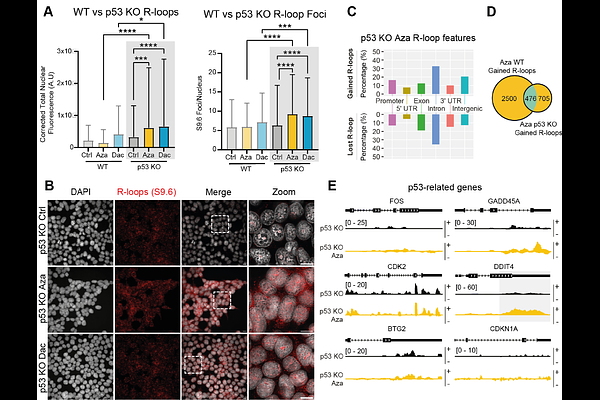p53 status determines the epigenetic response to demethylating agents Azacitidine and Decitabine.

p53 status determines the epigenetic response to demethylating agents Azacitidine and Decitabine.
Hands, E. L.; Wallmann, A.; Oxley, G.; Storrar, S.; D'Souza, R.; Van de Pette, M.
Abstract5-Azacitidine (Aza) and 5-Aza-2-deoxycytidine (Dac) are widely used demethylating drugs that directly integrate into nucleic acids. They are frequently used interchangeably, surprisingly as their selectivity is unique from the other, with no predictors of response or clinical biomarkers to indicate drug preference. Using these drugs to induce demethylation, we combine DRIPc-Seq, Immunostaining, RNA-Seq and Mass spectrometry to uncover unique cellular responses. Activation of p53, exclusively by Aza, sustained accumulation of R-loops in CpG islands of p53 target genes. This effect was abolished by the removal of p53, compounded by destabilisation of heterochromatin marks. Dac treatment induced global chromatin modification, sustaining DNA damage, which was heightened in the absence of p53. Rescue experiments reversed the changes observed in the epigenome, demonstrating a direct role for p53 in preserving H3K9me3 and H3K27me3. These insights further our knowledge of how cells recognize and respond to methylation changes and uncover novel roles for p53 in modulation of the epigenome. Further to this, we determine a first in kind biomarker in p53 status that may be relevant for clinical settings.